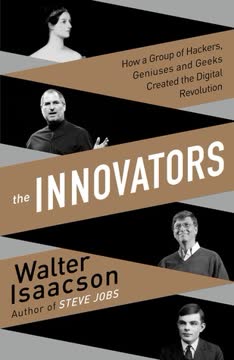Key Takeaways
1. CRISPR: A Revolutionary Gene-Editing Tool Born from Bacterial Defenses
"Nature is beautiful that way."
Bacterial immunity to innovation: CRISPR, originally a bacterial defense mechanism against viruses, has been adapted into a powerful gene-editing tool. This discovery highlights the importance of basic scientific research in driving technological breakthroughs.
Key players in CRISPR discovery:
- Francisco Mojica: Identified repeated DNA sequences in bacteria
- Jennifer Doudna and Emmanuelle Charpentier: Elucidated CRISPR-Cas9 mechanism
- Feng Zhang: Adapted CRISPR for use in human cells
The journey from bacterial defense to gene-editing tool exemplifies how curiosity-driven research can lead to transformative applications. CRISPR's ability to precisely edit DNA has opened up new possibilities in medicine, agriculture, and biotechnology, revolutionizing our approach to genetic manipulation.
2. The Race to Develop CRISPR for Human Gene Editing
"Healthy rivalries have fueled many of humankind's greatest discoveries."
Competition drives innovation: The race to develop CRISPR for human gene editing sparked intense competition among scientists, leading to rapid advancements in the field.
Key milestones in CRISPR development:
- 2012: Doudna and Charpentier publish groundbreaking paper on CRISPR-Cas9
- 2013: Multiple teams demonstrate CRISPR's effectiveness in human cells
- 2015: First international summit on human gene editing
The competitive atmosphere surrounding CRISPR research has accelerated progress but also raised concerns about the ethical implications of rushing to market. This race highlights the delicate balance between scientific advancement and responsible innovation in the field of genetic engineering.
3. Ethical Dilemmas and Societal Implications of Gene Editing
"We are here as part of a historical process that dates from Darwin and Mendel's work in the nineteenth century."
Navigating uncharted ethical territory: Gene editing raises profound ethical questions about human nature, equality, and the limits of scientific intervention.
Key ethical considerations:
- Germline editing: Potential for heritable genetic changes
- Enhancement vs. therapy: Drawing the line between treating diseases and enhancing traits
- Accessibility and inequality: Ensuring equitable access to gene-editing technologies
The ability to edit human genes forces us to confront fundamental questions about what it means to be human and how far we should go in manipulating our genetic code. Balancing the potential benefits of gene editing with its ethical implications requires ongoing dialogue between scientists, ethicists, and the public.
4. The Promise and Perils of Designer Babies
"When Mark saw his daughters, the first thing he said was that he never thought he could be a father."
Redefining human reproduction: The possibility of genetically engineered babies raises both hopes for eliminating genetic diseases and fears of creating a "brave new world" of designer children.
Potential applications of germline editing:
- Eliminating hereditary diseases (e.g., Huntington's, sickle cell anemia)
- Enhancing physical or cognitive traits
- Selecting for specific characteristics (e.g., eye color, height)
While the prospect of eliminating genetic diseases is compelling, the ability to select or enhance traits in embryos raises concerns about creating genetic inequalities and altering the course of human evolution. The case of He Jiankui's CRISPR babies in China underscores the need for careful regulation and ethical oversight in this rapidly advancing field.
5. Balancing Scientific Progress with Moral Responsibility
"Have we created a toolbox for future Frankensteins?"
Ethical stewardship of powerful technology: Scientists must grapple with the moral implications of their work and take responsibility for its potential consequences.
Approaches to responsible innovation:
- Self-regulation within the scientific community
- International guidelines and oversight
- Public engagement and education on genetic technologies
The development of CRISPR has forced scientists to confront the dual-use nature of their research. While the potential benefits are enormous, the risks of misuse or unintended consequences cannot be ignored. Striking a balance between scientific freedom and ethical responsibility is crucial for ensuring that gene-editing technologies are developed and applied in ways that benefit humanity without compromising our values.
6. The Future of Gene Therapy and Personalized Medicine
"To me, the big question is not will this ever be done again. I think the answer is yes. The question is when, and the question is how."
Revolutionizing healthcare: CRISPR technology holds immense potential for treating genetic diseases and developing personalized medical interventions.
Promising applications of CRISPR in medicine:
- Treating single-gene disorders (e.g., cystic fibrosis)
- Developing cancer therapies
- Creating disease-resistant crops and animals
The ability to precisely edit genes opens up new avenues for treating previously incurable diseases and tailoring medical treatments to individual genetic profiles. However, realizing this potential requires overcoming technical challenges, ensuring safety, and addressing ethical concerns surrounding genetic modification.
7. Global Regulations and the Need for Ethical Guidelines in Genetic Engineering
"We need to create a political safe space by going slow on germline editing so that we can continue working on somatic cell edits."
Navigating a complex regulatory landscape: The rapid advancement of gene-editing technologies necessitates the development of comprehensive, globally-coordinated regulatory frameworks.
Key regulatory challenges:
- Harmonizing international guidelines
- Balancing innovation with safety and ethical concerns
- Addressing the potential for "genetic tourism"
As gene-editing technologies continue to evolve, establishing clear ethical guidelines and regulatory frameworks is crucial. The international scientific community must work together to develop standards that promote responsible research while preventing misuse or premature application of these powerful tools. Engaging the public in these discussions is essential for building trust and ensuring that the development of genetic technologies aligns with societal values and priorities.
Last updated:
FAQ
What's The Code Breaker about?
- Focus on Gene Editing: The Code Breaker by Walter Isaacson chronicles the life and work of Jennifer Doudna, a pioneer in gene editing technology, specifically CRISPR. It details her journey from childhood curiosity to becoming a Nobel Prize-winning scientist.
- Impact on Humanity: The book explores the implications of CRISPR technology for curing diseases and enhancing human capabilities, while also addressing ethical dilemmas.
- Historical Context: It provides a historical overview of genetics, tracing the evolution of ideas from early discoveries to modern advancements in biotechnology.
Why should I read The Code Breaker?
- Inspiring Story: The book offers an inspiring account of a woman breaking barriers in science, making it relatable for anyone interested in STEM fields.
- Understanding CRISPR: It demystifies CRISPR technology, explaining its potential and controversies, and provides insights into how it could revolutionize medicine and agriculture.
- Ethical Considerations: The narrative prompts readers to think critically about the ethical implications of gene editing, including societal impacts and the potential for "designer babies."
What are the key takeaways of The Code Breaker?
- Revolutionary Technology: CRISPR is presented as a groundbreaking tool that can change the landscape of genetic engineering, with potential to cure genetic diseases.
- Collaboration in Science: The book highlights the importance of collaboration, showcasing how teamwork among researchers can lead to significant breakthroughs.
- Ethical Dilemmas: It raises important questions about the moral implications of gene editing, urging readers to consider the consequences of altering human DNA.
What are the best quotes from The Code Breaker and what do they mean?
- “Figuring out if and when to edit our genes will be one of the most consequential questions of the twenty-first century.”: This quote underscores the profound impact that gene editing technologies like CRISPR could have on future generations and the ethical dilemmas they present.
- “Nature is beautiful that way.”: Doudna reflects on the elegance of natural processes, emphasizing the interconnectedness of life and the importance of understanding these mechanisms to innovate responsibly.
- “Healthy rivalries have fueled many of humankind’s greatest discoveries.”: This highlights the competitive spirit in science, suggesting that competition can drive innovation and lead to significant advancements.
Who is Jennifer Doudna and why is she significant?
- Pioneer in Gene Editing: Jennifer Doudna is a biochemist known for co-developing CRISPR-Cas9, a revolutionary gene-editing technology that has transformed genetics.
- Nobel Prize Winner: She was awarded the Nobel Prize in Chemistry in 2020 for her contributions to CRISPR technology, marking a significant milestone in the recognition of women in science.
- Advocate for Ethical Science: Doudna emphasizes the need for ethical guidelines as gene editing technology advances, advocating for responsible use.
What is CRISPR and how does it work?
- Gene Editing Tool: CRISPR (Clustered Regularly Interspaced Short Palindromic Repeats) allows scientists to edit genes by cutting DNA at specific locations using a guide RNA and the Cas9 enzyme.
- Adaptive Immune System: Originally discovered in bacteria, CRISPR functions as an adaptive immune system, which has been harnessed for gene editing in various organisms.
- Versatile Applications: CRISPR technology has applications in medicine, agriculture, and biological research, enabling precise modifications to DNA.
What are the ethical implications of CRISPR technology?
- Designer Babies: The ability to edit genes raises questions about creating "designer babies," leading to ethical concerns about eugenics and societal inequality.
- Inequality and Access: There is a risk that gene editing could exacerbate existing inequalities, as access may be limited to wealthier individuals or countries.
- Regulation and Oversight: The book suggests the need for societal discussions and regulations regarding gene editing, involving public input and ethical considerations.
How did Doudna respond to the COVID-19 pandemic?
- Leadership in Science: Doudna quickly organized a team to address the urgent need for COVID-19 testing, leveraging her expertise in CRISPR technology.
- Collaboration and Innovation: Her response involved collaboration with other researchers, showcasing the importance of teamwork in scientific endeavors during a crisis.
- Real-World Impact: Her efforts contributed to the rapid development of testing protocols, demonstrating the practical applications of scientific research.
How does The Code Breaker address the competition among scientists in the field of CRISPR?
- Rivalries and Collaborations: The book details the competitive landscape of CRISPR research, particularly the race between Doudna, Zhang, and others to publish their findings first.
- Impact on Scientific Progress: Competition can accelerate discovery, but it also raises questions about research integrity and the pressure to publish.
- Personal Stories: The narrative includes personal anecdotes, showcasing how relationships influence work and the broader scientific community.
What is the significance of the Nobel Prize awarded to Doudna and Charpentier?
- Recognition of Innovation: The Nobel Prize in Chemistry acknowledges their groundbreaking work in developing CRISPR technology.
- Historical Context: The award is notable for being given to two women, marking a significant moment in the history of science.
- Impact on Society: It highlights the potential of gene editing to transform medicine and agriculture, encouraging ongoing discussions about ethical use.
How does The Code Breaker portray the future of gene editing?
- Promise and Peril: The book presents a balanced view, highlighting CRISPR's potential to cure diseases while cautioning against misuse and ethical dilemmas.
- Call for Regulations: It emphasizes the need for thoughtful regulations and guidelines to ensure responsible and ethical use of gene editing.
- Hope for Humanity: The narrative conveys optimism about CRISPR's potential to improve lives and address health challenges, with careful consideration and responsible use.
How did Doudna's upbringing influence her career?
- Curiosity-Driven Childhood: Growing up in Hawaii, Doudna developed a love for nature and science, fostering a deep curiosity that propelled her into a scientific career.
- Supportive Family: Her family encouraged her academic pursuits, particularly her father, who instilled a love for learning and exploration.
- Resilience and Determination: Early experiences with feeling like an outsider motivated her to persevere, helping her overcome obstacles in a challenging field.
Review Summary
The Code Breaker receives mostly positive reviews for its engaging narrative on Jennifer Doudna's work with CRISPR gene-editing technology. Readers appreciate Isaacson's ability to make complex scientific concepts accessible and his exploration of ethical implications. Some criticize the book's broad scope and repetitive content. Many find the sections on COVID-19 research particularly timely and interesting. While some readers struggled with the scientific details, most found the book informative and thought-provoking, praising Isaacson's storytelling skills and the book's relevance to current issues in science and medicine.
Similar Books
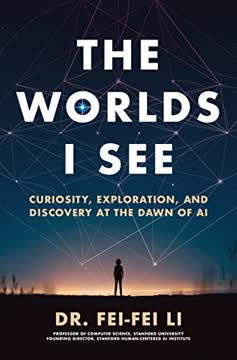



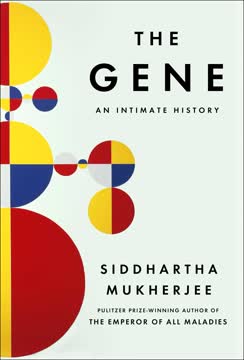


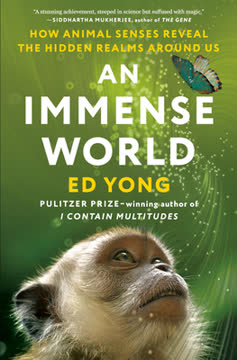
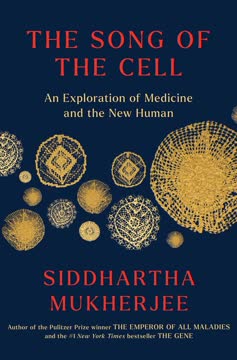

Download PDF
Download EPUB
.epub digital book format is ideal for reading ebooks on phones, tablets, and e-readers.





